How do hormones affect skin health?
Are you “hormonal,” or is your body just trying to tell you something? Hormones have a profound effect on your skin and your overall health as you age. Think of hormones as a musical instrument and your body as a symphony orchestrated by those instruments. Each instrument must play its part at the right volume to create a balanced and beautiful symphony. If even one instrument is off-key (out-of-balance), there will be noticeable signs. If you’ve ever wondered, can hormones cause itchy skin? What hormones cause oily skin? You’re in the right place. As you can see, hormones and skin, and health have an interconnected relationship.
Noticeable signs for your skin include dryness, acne, fine lines, wrinkles, and rosacea. For your health, the noticeable signs can include a negative impact on your metabolism, mental focus, memory, cognition, aging, sleep, fertility, and even sex drive. Hormones also play a role in cardiovascular health, bone growth, and blood sugar regulation.
To complicate any efforts to balance hormones, our bodies continually go through hormonal changes as we age. For example, as we age, the production of certain hormones, such as estrogen and progesterone, will change, affecting our health and skin. So, as you can see, if you’re suffering from imbalanced hormones, you may face many health and skin issues. Don’t worry, though – I’m here to help you learn how to address hormonal imbalances naturally.
Things We Do That Disrupt Hormones
Many of your everyday habits can disrupt hormones – including poor eating, sleeping, and exercise habits. Certain medications such as birth control can throw hormones for a spin and lead to nutritional deficiencies. Chronic stress will disrupt hormones, decrease quality of life, and possibly lead to mood disorders.
Another major contributor to hormone disruption can be found in the ingredient list of some skin care products. Many skin care products contain endocrine-disrupting chemicals (EDCs), which interfere with hormones’ normal function. These chemicals are absorbed into the bloodstream and can potentially wreak havoc on your endocrine system.
According to the Endocrine Society, EDCs are associated with fertility issues, breast development, breast cancer, prostate cancer, thyroid disease, neuroendocrine problems, obesity, and cardiovascular disease.
A critical step for reducing exposure to EDCs is to be very particular about what we put on our skin. For example, avoid using oxybenzone (found in sunscreen), parabens, and fragrances because they can have hormone-disrupting effects. Choose skin care products with safe and natural ingredients.
Hormones With The Greatest Effect
Four main hormones profoundly affect skin and health and can lead to signs of premature aging. They include estrogen, testosterone, thyroid hormones, and cortisol. Testosterone and estrogen are needed to help maintain the delicate balance known as homeostasis. While cortisol helps balance blood sugar levels, regulate metabolism, aid in reducing inflammation, and assist with memory formulation. Thyroid hormones are secreted into the blood, then carried to every tissue to help your body use energy, stay warm, and keep your brain, heart, muscles, and other organs working properly.
Many other hormones play a role in maintaining our health, but these are the four major contributors to most people’s skin types. Here is what happens when these hormones are imbalanced:
Estrogen
Levels decline as we age, which significantly affects how our skin looks and feels. Low estrogen can cause the skin to become dry, less elastic, and more fragile. For women over the age of 40, declining estrogen levels is the leading cause of dry, sagging skin. Fine lines turn into deep creases. The skin around your eyes and lips may droop. Other signs of low estrogen may be bone loss, hot flashes, insomnia, mood changes, night sweats, or vaginal dryness. If you are over 40 and seeing any of these signs, you may need additional estrogen support.
On the other hand, high estrogen comes with its own problems. Women who are pregnant or on birth control pills generally have higher estrogen levels and are more prone to hyperpigmentation (also known as melasma). If you’re an Amber-type (see pages 23–25 of my book); taking hormones; or experiencing melasma – be sure to balance your hormones, especially estrogen.
Testosterone
Testosterone is an important hormone involved in skin health. It stimulates the sebum-producing glands, which are important for protecting skin with natural oils, but overproduction can lead to acne. Age-related hormonal changes, such as those experienced during puberty and menopause, may cause testosterone to change and metabolism shifts, leading to oily or breakout-prone skin. Even as an adult, if your testosterone levels change, you may experience acne even if you never had a problem as a teen! If you are an Olivia-type (see pages 25–26 of my book), your skin is excessively oily, or you are prone to acne, you might be dealing with a testosterone imbalance.
Thyroid Hormones
These hormones can also influence your skin’s appearance. An overactive thyroid can cause warm, sweaty, and flushed skin, while an underactive thyroid can lead to dry, coarse skin with a reduced ability to perspire. If you suffer from any of these skin problems and have weight, digestion (constipation or diarrhea), or energy issues (fatigue or feeling over-stimulated), talk with your doctor about thyroid testing. The tests to ask for are TSH (thyroid stimulating hormone), Free T3, Free T4, and if you can, thyroid antibodies, and a reverse T3.
Cortisol
Cortisol is released from your adrenal glands,in response to stress. Surges of this hormone due to a highly stressful situation may cause increased sebum production and can trigger acne and amp up inflammation, making almost any skin condition worse. Chronically high cortisol levels can worsen conditions, including acne, eczema, rosacea, and vitiligo. A high level can also lead to sugar cravings, but eating excess sugar increases ‘skinflammation’ and breakouts. So you may get caught in a vicious cycle.
Experiencing adrenal fatigue or chronically imbalanced cortisol levels can leave you feeling “tired but wired.” Suppose you have noticed weight gain around your middle section, or you’re experiencing fatigue, insomnia, or sugar cravings. In that case, you may need extra support from a physician to balance your cortisol levels.
How To Balance These Major Hormones
Now let’s discuss what you can do to support balanced hormones. You can do several things to support hormone balance in your body by managing your stress levels, eating healthy, getting enough quality sleep, and exercising regularly.
A clean, nourishing diet can help with hormone production and metabolism by supporting your liver’s detoxification pathways to break down hormones, which in turn helps your body maintain balanced hormone levels. Foods to support liver detoxification include onions, garlic, and cruciferous vegetables – such as broccoli, cauliflower, and cabbage.
Balance Estrogen
Depending on if you have low or high levels of estrogen, there are a few natural tips to consider. If you are experiencing symptoms of low estrogen, you may want to incorporate various herbs and botanicals such as maca, black cohosh, and hops. Flaxseed is high in soluble fiber and in lignans, which are a phytoestrogen. Phytoestrogens can mimic estrogen in the body. They have been found to be beneficial in combating symptoms and conditions caused by estrogen deficiency.
If your estrogen levels are high, consider eating seaweed and cruciferous veggies (broccoli and kale), season foods with turmeric, or you may want to take supplements such as DIM (diindolylmethane, found in cruciferous vegetables) to help boost the way your body metabolizes (breaks down) estrogen.
If you think your estrogen levels may be out of balance, talk with a qualified healthcare provider about testing your hormone levels and getting individualized support.
Balance Testosterone
If you’re experiencing oilier skin due to androgen excess, it is a good idea to avoid dairy. Dairy products are made with the milk of pregnant or recently pregnant cows, which contain hormones that can potentially impact your own hormone balance. Dairy sensitivity may trigger your body’s inflammation response and lead to breakouts, as well.
A study on omega-3 fatty acids (in fish and supplements) showed that regular use could balance testosterone levels. A diet short of Omega-3 fatty acids can leave your skin dry, itchy, and prone to acne, so make sure you get enough. There are various sources of Omega-3s. Zinc is another supplement I recommend to help balance testosterone. You can get zinc in a supplement or by eating green beans, sesame seeds, and pumpkin seeds.
Balance Thyroid Hormones
If your thyroid is low, high, or you have antibodies, your doctor’s treatment plan will be tailored specifically to the problem you are facing. TSH, Free T3 or T4, thyroid antibodies, and reverse T3 are the blood tests to ask your doctor to run. When the results come back, ensure they’re within optimal ranges, rather than the broad “normal” range. To help achieve optimal thyroid function, consider working with a licensed naturopathic physician or functional medicine practitioner.
That said, there is food that can help aid healthy thyroid function. These foods include seaweed, which is naturally rich in iodine – a trace element needed for normal thyroid function. Also, eating fish, eggs, and nuts rich in Omega-3 fatty acids and selenium, which are known to support healthy thyroid function.
Balance Cortisol
A saliva test can identify your cortisol levels. So, talk to your healthcare provider for more information about testing.
If you suffer from imbalances in cortisol, the recommendations I give in the “clean mind” section of my book Clean Skin From Within can help support your adrenal function. Some other natural ways to balance cortisol include creating a bedtime routine to support a good circadian rhythm to optimize hormone balancing. Limit or eliminate alcohol, caffeine, sugar & processed food. Incorporate regular moderate exercise. Go enjoy a massage to relax your body and reduce stress. Participate in some mindful meditation to reduce anxiety. Also, consider discussing with your physician or pharmacist supplements that will support healthy adrenal function.
Abnormally high cortisol levels cause thin skin that appears almost paper-thin. To support your skin externally, use skin care products that contain adaptogenic herbs such as rhodiola, ashwagandha, astragalus, and ginseng. Ginseng is a powerful adaptogen herb that increases your overall resistance to all types of stress and helps rejuvenate and invigorate tired-looking skin.
Balanced Hormones & Skin Health
Hormones affect your skin health as you age in many ways because they regulate so many of our bodily functions. Keeping them balanced and functioning properly helps you look and feel your best. A great place to start for balanced hormones is to eat nourishing and cleansing foods, manage stress, and avoid personal care products that contain EDCs.
Are you looking for support to balance hormones? The Spa Dr.’s two-week online program (also found in my book Clean Skin From Within) gives in-depth guidelines and shares which foods to eat to help improve detoxification and establish balanced hormones.
The Spa Dr.® Approach
At The Spa Dr.® – our approach is to help shine the light on skin care information and offer guidance to nurture your skincare journey. We believe the information we provide will help support your self-care and healing, and we want you to feel safe and cared for within our community!
If you are not already part of The Spa Dr. community, I invite you to join us on social media.
I hope you enjoyed these natural beauty tips. Feel free to share them with your friends, and spread the word to promote natural beauty.
I would love to hear about your story. Which hormones are affecting your skin and health right now? And what are you doing to keep them in balance? Share your comments below!
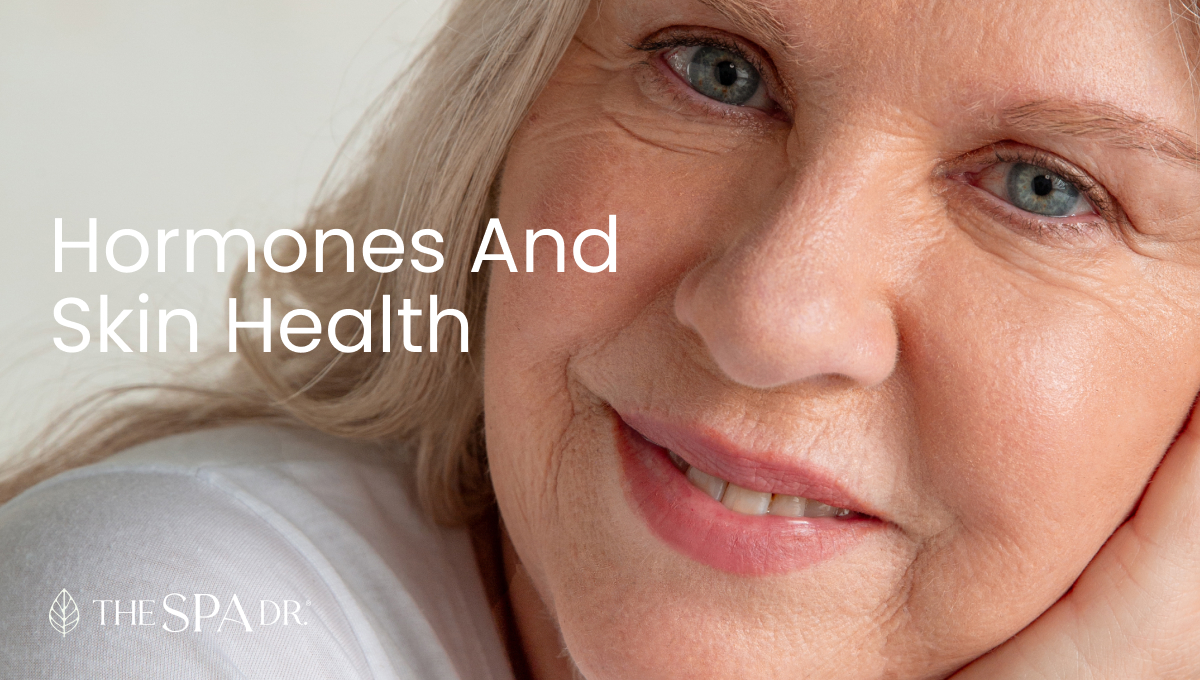
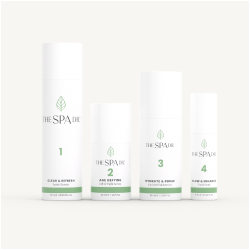
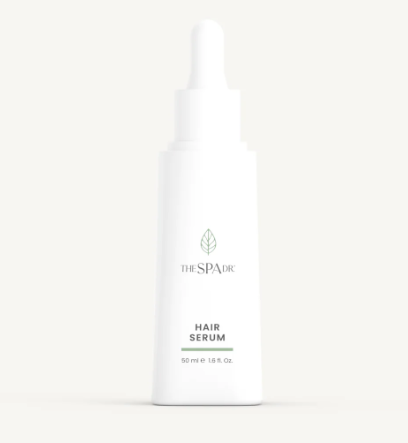
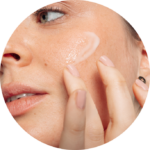

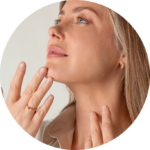

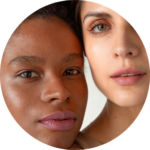
Reader Interactions
Dear Dr. Cates,
While I’m happy to say that keeping up with your posts and podcasts have definitely helped my skin look younger and dewier despite my adult acne, I noticed a few days ago that my pores look larger now, especially around the nose, to the point they are noticeable. I’m not sure if this is aging, a flareup of some sort, or what, but I would love to hear your take on it given that much of my face looks a good deal younger than it used to. I could really use some suggestions.
Thank you for all of this!
Jenny
Also, if you have any suggestions on how to help minimize the look of pores, that would be fantastic too!
Jenny, are you using my skincare line? Many customers have shared with us that it has helped reduce pore size – https://thespadr.com/collections/skin-care/products/daily-essentals-4-step-system
No, I’m not, though I may look into it.
Jenny, have you taken my skin quiz? TheSkinQuiz.com
Yes, I’m an Olivia type.
Hii my name is yasmin and i’m 18 year old girl.. suddenly on my face some black spots arrived and its been 2 years of treatment and my skin is still not cleared… all the doctors are suggesting the skin lightening cream but it does not effect intead of benefit , it burns my face so tell me something about this skin deseas? And its treatment..
Hi Yasmin, I recommend setting up a free call with one of my skin experts and she can direct you on what would be best to help you with your specific skin type. You can do that at this link: https://thespadr.com/free-skincare-consult/